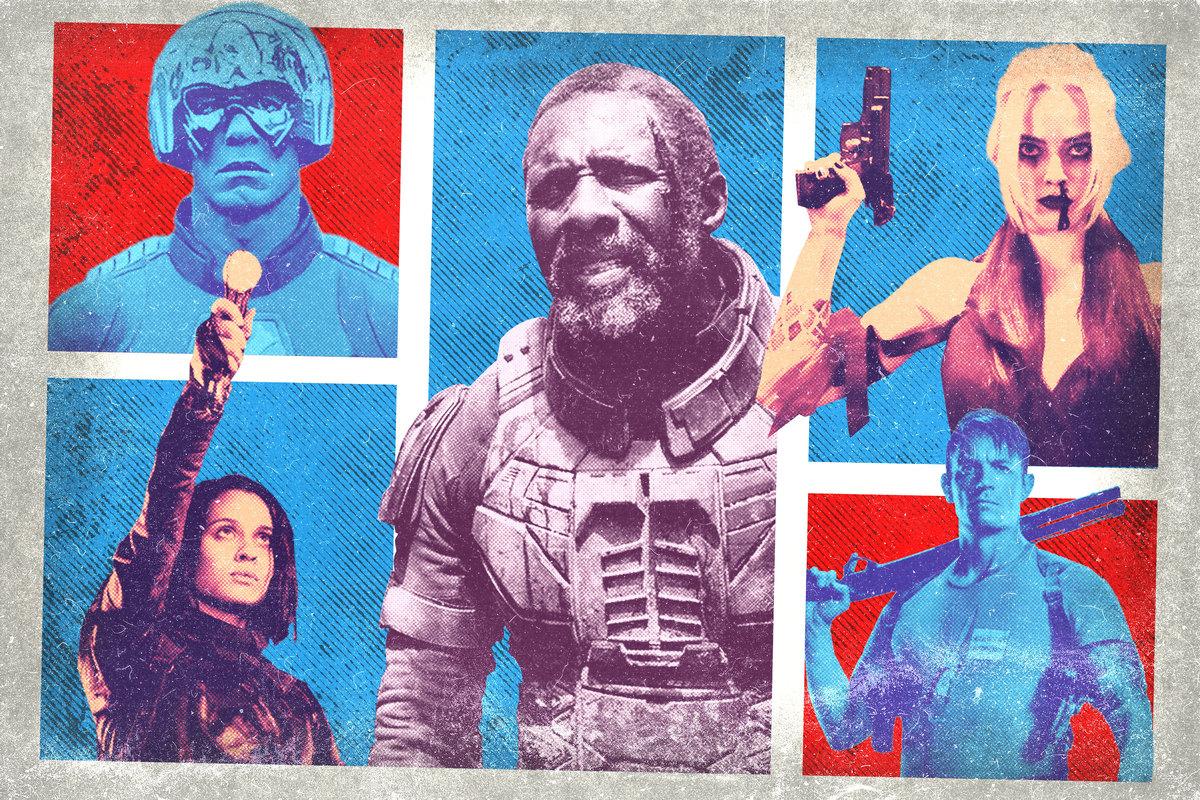

By the time the title screen appears in The Suicide Squad, the majority of Task Force X is already dead. It’s an overt announcement from director James Gunn in his first foray into the DC Extended Universe: All bets are off. And just as quickly, it’s clear that all this franchise needed was a new direction, an R rating, and perhaps above all else, a second chance.
With respect to David Ayer, who may be less to blame for 2016’s Suicide Squad than Warner Bros. is, Gunn’s The Suicide Squad succeeds in just about every way that its predecessor failed. It takes risks like few superhero movies do, centering its story on a group of bad guys who gruesomely kill their enemies—and also, you know, innocent people—with little hesitation. It introduces some of the dumbest characters to grace the pages of DC Comics, makes them tragic antiheroes, and pits them all against a gigantic, telepathic alien starfish named Starro. The Suicide Squad is, without a doubt, the strangest, most absurdly over-the-top entry to the DCEU to date. And it’s also easily one of the strongest films the studio has made yet.
Despite being a critical darling and the second-highest-rated DCEU film ever on Rotten Tomatoes, The Suicide Squad stumbled out of the gate at the box office, likely due to increased concerns about the Delta variant and the film’s simultaneous release on HBO Max. And while it’s a shame that its disappointing financial performance has overshadowed what should’ve been a celebratory opening weekend, the movie is still a shining example of how wildly creative superhero flicks can be. Not only that, but it could serve as a potential blueprint for how the DCEU can grow after struggling to find its footing for nearly a decade.
Although there has yet to be any announcement of a third installment of the immediate franchise, The Suicide Squad leaves plenty of room for more—in fact, a spinoff is already set to hit HBO Max as soon as January 2022. With that said, here are the biggest takeaways from the film and where the DCEU could be headed next.
The Survivors of Task Force X
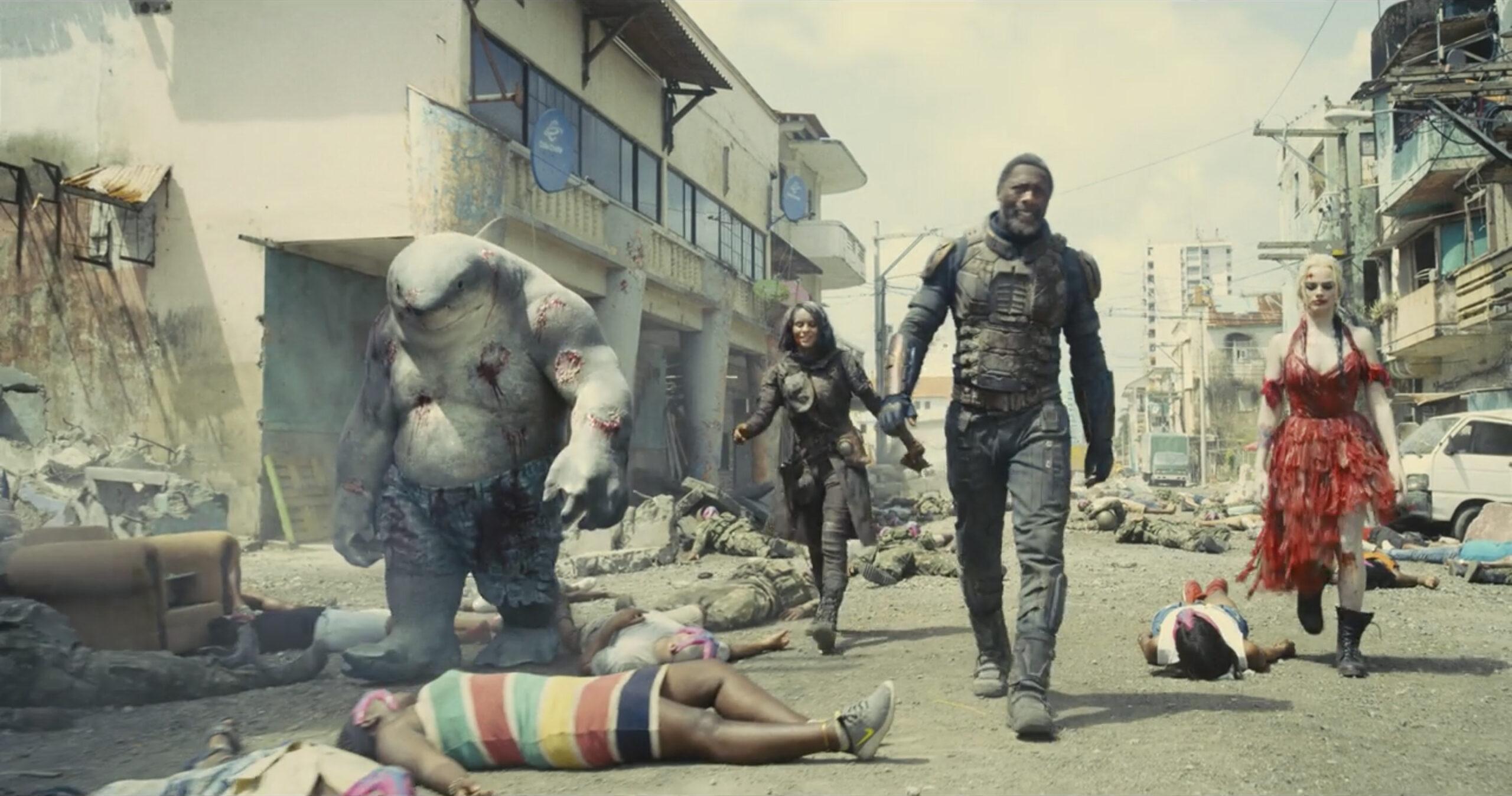
After all the explosions, alien starfish, and overall chaos that ensues in The Suicide Squad, only four members of the team are left standing: Bloodsport, Harley Quinn, Ratcatcher 2, and King Shark. At the end of the film, Bloodsport manages to cut a deal with Amanda Waller using the hard drive of evidence of the U.S. government’s involvement in Project Starfish in order to negotiate the team’s freedom. This decision ultimately goes against what Col. Rick Flag died for, as Peacemaker killed him before he could release its contents to the world and reveal America’s part in a disaster that claimed countless lives. “I know Flag wanted to give the drive to the press, but we just saved a whole bloody city,” Bloodsport tells Harley. “We can’t have it all.”
While a more traditional superhero film would have made Bloodsport do the right thing, he instead chooses the more selfish option to ensure that he and his team won’t have to return to prison and risk being roped into another Task Force X mission. It’s certainly a more fitting narrative choice, but it also leaves this revitalized franchise with less of a clear path forward should it return for a sequel. Then again, the four survivors could easily find themselves back in prison by the start of the next film, just as Harley did in The Suicide Squad, or Task Force X could continue to cycle in new members with every movie.
Of course, as revealed in the two post-credits scenes, it turns out that these four weren’t the only Task Force X antiheroes to survive after all. One of them will even be the star of their own HBO Max series in early 2022 (no, not you, Weasel), which brings us to ...
Peacemaker
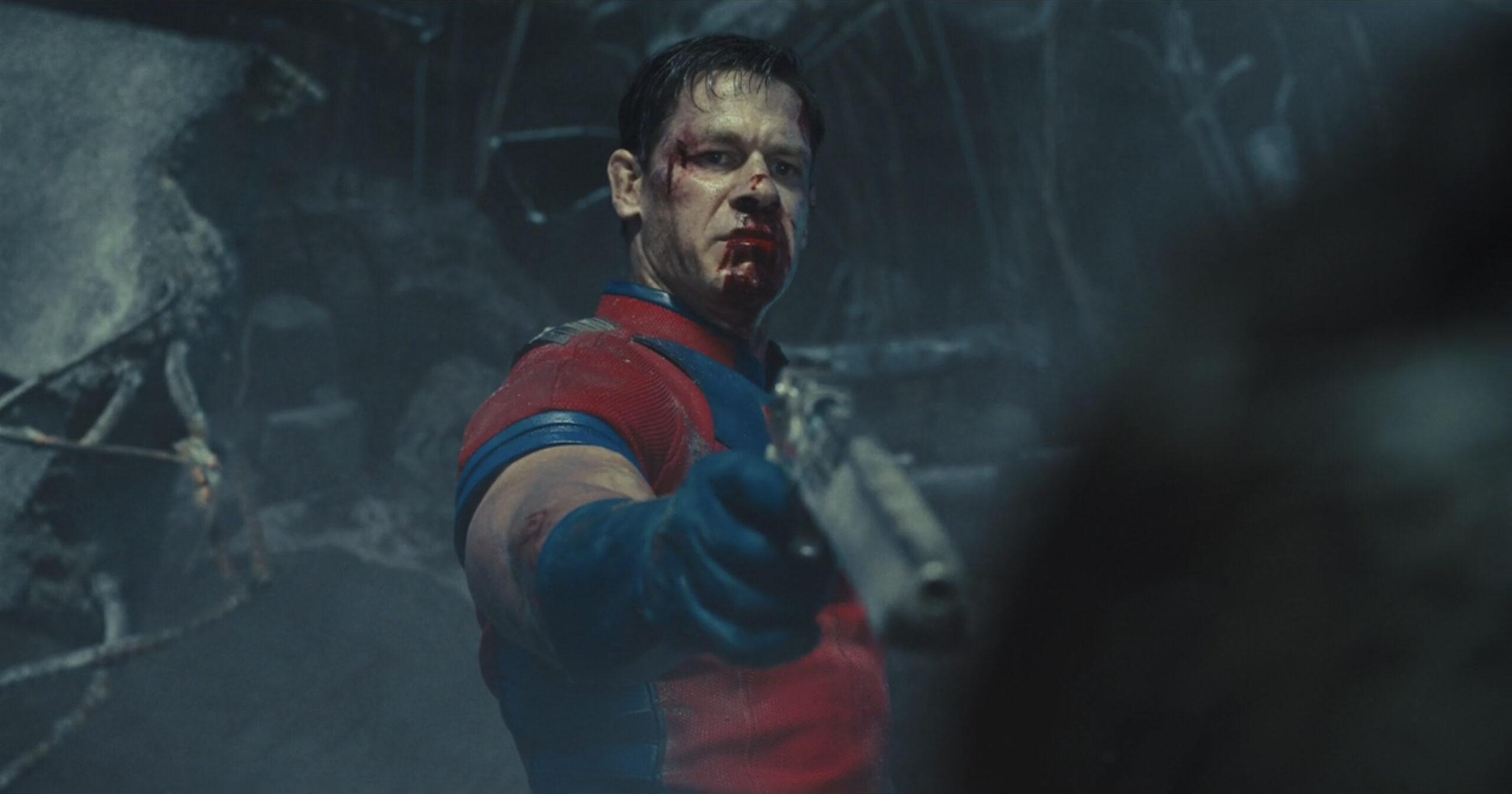
“I cherish peace with all my heart,” Peacemaker sternly tells his new teammates near the beginning of their mission on Corto Maltese. “I don’t care how many men, women, and children I need to kill to get it.”
John Cena’s douchey version of Captain America makes quite the impression in his DCEU debut in The Suicide Squad, one strong enough to earn his own spinoff series on HBO Max. He is, like pretty much everyone else in this film, certainly not a hero, but he’s not exactly a true villain either, even if he and Bloodsport killed dozens of well-intentioned Corto Maltesean resistance fighters and made a game out of it. (Hey, I didn’t say he was a good guy.) And despite Peacemaker killing Flag and nearly killing Ratcatcher 2 as well, Gunn has selected this extremely toxic patriot to be the star of the DCEU’s first TV show. Gunn will return as the writer for all eight episodes in the series, as well as the director for five of them, and in a recent interview with Variety he hinted at what’s next for Peacemaker:
There’s a moment in the movie where Bloodsport talks about his father and what his father was like, and you cut to a shot of Peacemaker, and Peacemaker nods. That’s the seed of the entire Peacemaker series. So we get to see Peacemaker with his father, who’s played by Robert Patrick, where he came from, what he’s done, what that means to him, and where he’s going after all of this. Because he’s not an evil person, he’s just a bad guy. He seems sort of irredeemable in the film. But I think that there’s more to him. We didn’t get a chance to know him [in The Suicide Squad] in the way we get to know some of the other characters. And so that’s what the whole show is about.
After Peacemaker’s gun-slinging duel with Bloodsport ends with blood spewing out of his neck (not to mention the building that collapses on top of him moments later), it seemed as if Peacemaker’s upcoming series would serve as a prequel to The Suicide Squad. But the final post-credits scene finds two of Waller’s employees begrudgingly visiting Peacemaker in a hospital at the behest of their boss. And when the doctor asks them what reason they have to retrieve him if they think so lowly of him, one replies with a fully committed level of seriousness: “Just to save the fucking world, that’s all.”
It seems as if Bloodsport’s deal with Waller did not extend to Peacemaker, but based on his commitment to the American government when he killed Flag (despite not wanting to), it’s possible his next world-saving mission won’t include an explosive device that’s lodged into the base of his skull. While Peacemaker is not exactly the hero we deserve, apparently he’s the one we need right now.
The Continued Evolution of Harley Quinn
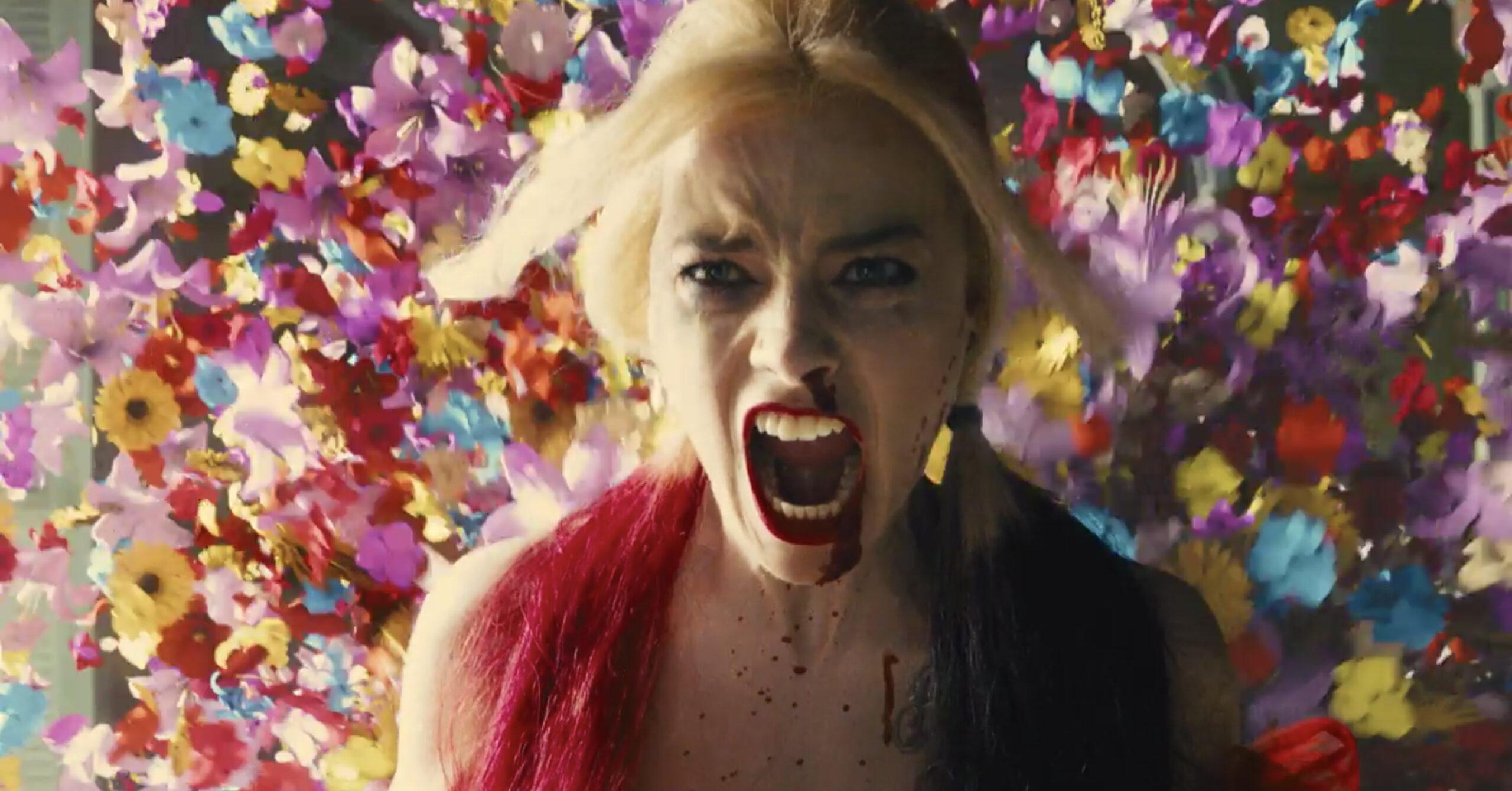
In Margot Robbie’s third turn as the psychiatrist turned queen of Gotham City’s underworld, Harley Quinn remains the consistent highlight of the DCEU. Along with her solo film, Birds of Prey, she’s now been at the heart of two of its best movies to date, and her survival in The Suicide Squad suggests that there’s a good chance that Robbie will be back to reprise her role again.
When 2016’s Suicide Squad introduced Harley to the big screen, the film failed to unlock the character’s full potential by keeping her largely tethered to the Joker. For much of her history since being introduced in Batman: The Animated Series in the early ’90s, Harley has been stuck in an abusive relationship with Gotham’s Clown Prince, given little more to do than serve as Joker’s submissive sidekick and girlfriend. But she thankfully found new life in the comics when she was reintroduced in 2011’s Suicide Squad series as part of DC’s New 52 relaunch, when the company decided to revamp its entire line of monthly superhero comics. This new version of Harley finally pushed her out from Joker’s shadow and allowed her to become a character in her own right. And though David Ayer’s Suicide Squad ultimately failed to bring this version to life, Cathy Yan’s Birds of Prey finally emancipated Harley on the big screen as well, providing the Oscar-nominated Robbie the space to make the character truly shine.
Although Gunn apparently did not factor in Yan’s portrayal of Harley when writing his screenplay of The Suicide Squad, he picks up right where she left off as Harley continues to evolve into one of the DCEU’s strongest, most fully formed characters. Along with Harley’s amusingly absurd fling with a dictator that ends with her murdering him in cold blood (which is, remarkably, a mature sign of growth as she’s able to recognize another potentially toxic relationship), Gunn introduces her so-called “Harley Vision.” Near the end of Harley’s violent escape, animated flowers and birds begin to appear around her amidst the bloody trail of corpses she’s leaving behind, providing a glimpse into her twisted and unique point of view. While Harley’s whole subplot in the film has little to do with the rest of the story, it’s a delightful interlude that showcases how far her character has come and how little she needs the Joker to succeed.
Paired with her excellent animated series on HBO Max, Harley has solidified her status as one of the most popular characters in the DC universe in every medium she appears in. And though the future of Robbie’s Harley may remain a mystery for now, it’d be a huge mistake on DC’s part if she doesn’t return again to sow a little more chaos.
The Future of the DCEU
As always, the state of DC’s cinematic universe remains very much in question. For years, DC Films has been hopelessly trying to carve out space alongside Marvel Studios’ MCU. As of late December 2020, Warners had generated $8 billion in worldwide superhero ticket sales over the past decade, according to The New York Times. That number is nothing to sneeze at, but in comparison, Marvel raked in $20.6 billion in the same time span. And even beyond the numbers, no DCEU movie had really come close to reaching the same critical heights as some of Marvel’s best works.
But the recent spate of R-rated films like The Suicide Squad, Birds of Prey, and even the polarizing and vapid Joker present the path DC should take. Though the Disney-owned Marvel Studios will continue to churn out successful films and TV shows regardless of what DC does, Warners has the ability to vault over the family-friendly boundaries that every superhero outside of the recently acquired Deadpool franchise is confined to at the House of Mouse. While Marvel films are notoriously sexless and limited in their use of profanity, The Suicide Squad just packed in more profanity, nudity, and gratutious violence in the span of 132 minutes than the MCU has in 24 films combined. That’s not to say that DC should be crudely vulgar at every turn for the mere sake of it, but it simply has a level of freedom that no Marvel film will ever have, and the ability to effectively target an older audience. It would be a waste to not take advantage of it.
The main issue with the greater DCEU is that there really does not seem to be a particularly coherent plan. The Snyderverse experiment, which seemingly concluded with the odyssey that is Zack Snyder’s Justice League, ultimately failed, with loosely connected films amounting to the disaster of Joss Whedon’s Justice League. Following the major crossover flop, DC wisely pivoted to a different approach that deemphasized an interconnected cinematic universe with successful films like Shazam! and Birds of Prey, but it seems as if the studio is recalibrating yet again following the end of the Zack Snyder era.
Starting in 2022, Warners intends to accelerate the pace of its superhero releases as it turns to a multiverse model not too dissimilar from Marvel’s. DC Films president Walter Hamada told the Times that their plan is to roll out up to four films per year in theaters, with two additional movies to be released exclusively on HBO Max, along with complementary TV series to connect with their big-screen titles. “With every movie that we’re looking at now, we are thinking, ‘What’s the potential Max spinoff?’” Hamada told the Times.
The next chapter of the DCEU is a bit dizzying to consider at the moment, especially with the Robert Pattinson–starring The Batman quickly approaching and The Flash following close behind. Not only is Justice League’s Ezra Miller set to reprise his role as Barry Allen, but he’ll be joined again by Ben Affleck’s iteration of Batman and, most surprising of all, Michael Keaton, who’ll return to Gotham after a nearly 30-year hiatus. The DCEU still has much to prove in terms of consistency after nearly a decade of mostly missed opportunities; carrying over Miller and Affleck from the Snyderverse does not exactly inspire confidence. But before the Dark Knight rises once again, Warners has entrusted Gunn to kick off this new model of crossing over films with TV shows on HBO Max. If Peacemaker manages to recapture the spirit of The Suicide Squad when it premieres in January, then the DCEU may be on course for a promising reboot.
Will the Weasel Return?
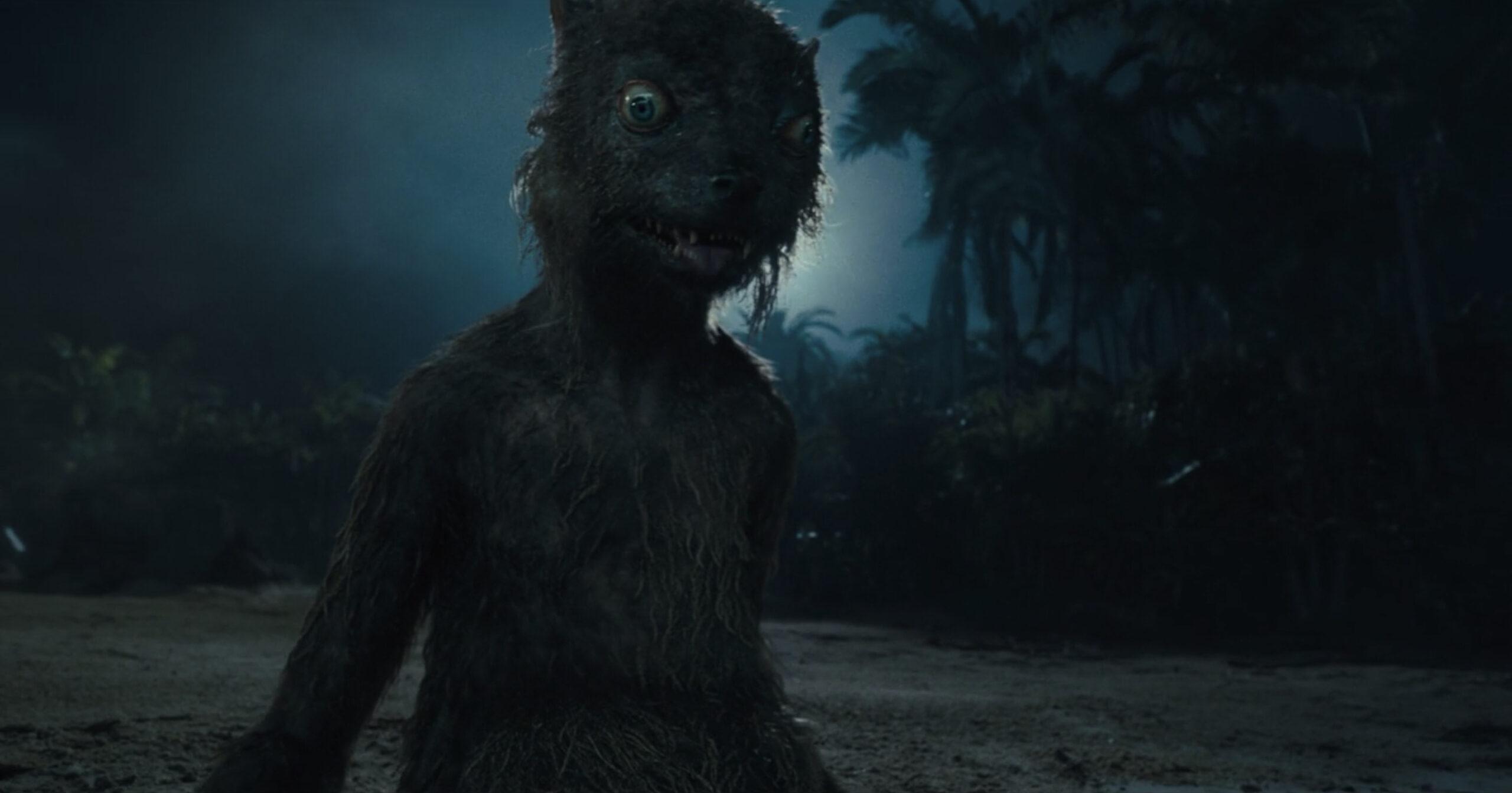
Nobody checked whether the Weasel could swim. And for that, perhaps we should all be grateful. The disturbing, murderous human-weasel hybrid (or dog?) thankfully died before Task Force X’s mission even began in earnest, sparing us from his comically haunting presence for the majority of the film. But in The Suicide Squad’s first stinger, Weasel wakes up on the beaches of Corto Maltese, coughing up water before slinking into the night.
So, will the Weasel be back for more? For all of our sakes, as well as for the safety of children everywhere, let’s certainly hope not. But if the DCEU takes note of the successes of The Suicide Squad, there’s no telling what the future has in store.

